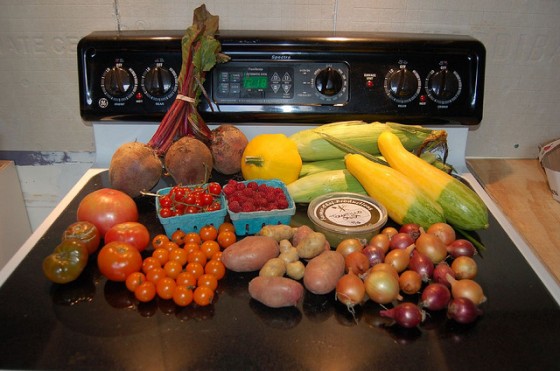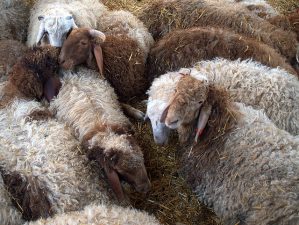 New regulations in Egypt will prevent from fraudsters from falsifying inorganic food.
New regulations in Egypt will prevent from fraudsters from falsifying inorganic food.
Organic agriculture is not so widespread in the Middle East. There are certain places in Israel that belong to the WWOOFing network, while Dubai creeps along with farms that unfortunately rely on desalination for their water. Turkey too is heading in that direction, slowly, with its Orbanic farmers market.
In Egypt, where no regulations exist to prevent it from happening, producers slap high tags on their products and call them organic or biodynamic – even when they are not. In response to complaints, the Ministry of Trade and Industry has introduced new certification regulations that should curtail this process.
Prices for organic products are often double regular products, but to date, the Ministry of T&I has not required producers to certify their food.
Salwa Shoukry, a board member of the Consumer Protection Agency and Vice President of the Heliopolis Consumer Protection Association, told Al-Ahram Weekly that jilted customers had no legal traction with which to issue complaints since no laws protected against this practice. Until now.
Though both producers and auditors will have a three month grace period, they will be required from now on to achieve accreditation from the Egyptian Organization for Standardization and Quality (EOSQ). It will be illegal to use any kind of organic labeling unless producers have first been validated by specialized auditors and both have registered with EOSQ.
EOSQ also reserves the right to inspect producer premises. If it is found that their products do not comply with organic standards, the auditors will be held responsible. They will, in fact, be shut down. This answered how the Ministry will prevent underhanded behavior in a culture that has long tolerated corruption.
The General Manager of Isis Organic Food and Beverages, Mamdouh Abul-Eish, welcomes the initiative and told the paper that businesses have plenty of time to adjust while auditors already exist to satisfy American and European standards. All that is required now is for them to register for local standards.
Zakaria Haddad with the Egyptian Association for Biodynamic Agriculture (EABA) is also pleased, since the new standards will pave the way for a more sustainable future. At present, according to him, less than one percent of Egypt’s population consumes organic food.
:: Al-Ahram
More on organic agriculture in the Middle East:
Interview: Buying Local in Dubai With Baker & Spice’s Yael Mejia
Old McDonald Gets Farmigo Software to Manage His Organic Farm
Lebanon Celebrates Three Years of an Organic Farming Project
image via ilovebutter


